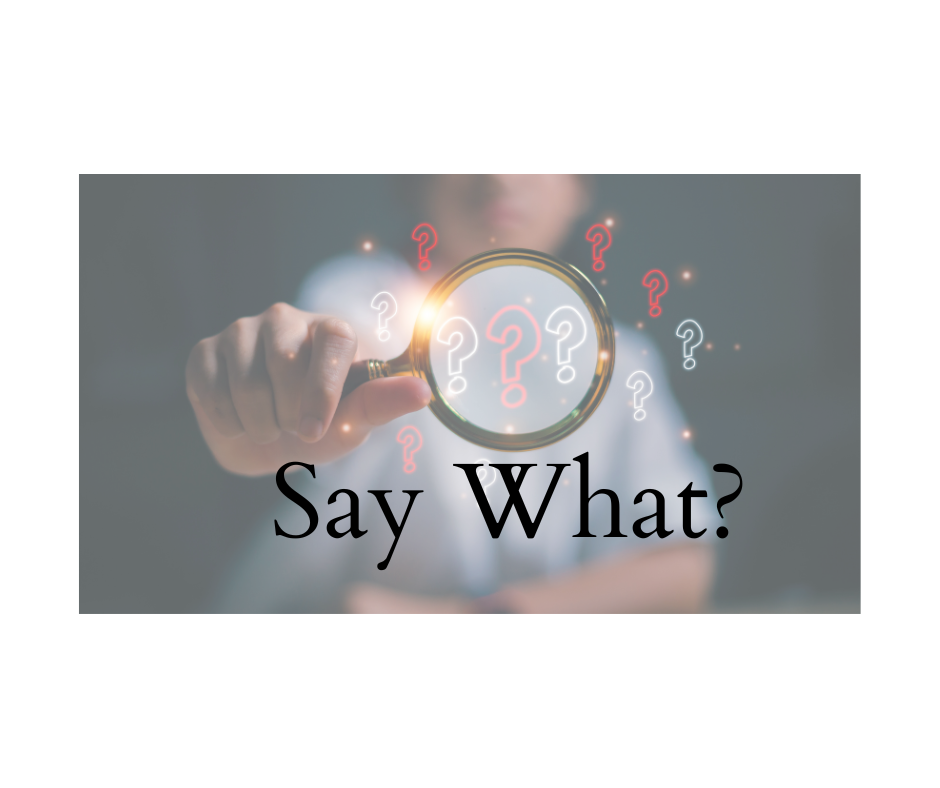Tenses Don’t Have to Be Intense
You took those English grammar classes in school, and you really don’t want to suffer through them again, do you? To be a great fiction writer, you don’t have to memorize all the parts of speech and be able to spout off all the various tenses. So take a deep breath and calm down. But know this—it does help to understand how words function in a sentence, and yes, it’s good to know a little about tenses.
But learning about tenses doesn’t have to be intense. When you study a foreign language, you often learn a lot about your own because you’re called upon to learn the various tenses and know how to conjugate verbs. And it’s good to understand tenses when you’re a fiction writer because you won’t always be writing in present tense.
I see a lot of problems with tenses in the manuscripts I critique and edit. Often writers mix their tenses up or don’t use the proper one for the passage they are writing. I often query writers with comments like: “Do you mean this is happening now? Or did you mean for this to be in the past?” This can cause huge problems in your story, so it would be wise to make sense of tenses.
Here’s a simple breakdown of the most common tenses:
- Present tense, happening now: I walk down the street. [That was easy, right?]
- Past tense, over and done with: I walked down the street. [Still easy, right?]
Now here’s a group of tenses that are called “perfect.” Why are they perfect—are they better than all the rest? No, silly. They are perfect because they are complete, done, finished.
- Present Perfect: I have walked down the street. [Done, over]
- Past Perfect: I had walked down the street. [Before something else happened]
If you want to go for the big one, here it is:
- Future Perfect: I will have walked down the street. [an action that will be complete in the future]
Is that all the tenses? Oh heavens, no. But I hope you now understand perfectly the perfect tenses. I have finished (present perfect) giving you my lesson. More to come next week.








Hi Suzanne
Thanks for yet another pertinent article for us writers out here in Just-Another-Page Land. I have noticed a movement toward lessening the use of the past perfect as it gets a little tedious if used for a whole paragraph. The idea is that the past perfect has already been established so the author can slip into simple past or present perfect. What are your thoughts on this?
Regards
Elaine
I discuss this in my Say What book. The best way to signal a flashback or passage about something that already happened is to signal with the use of the past perfect: I had gone to my mother’s house that day …. and then stay in past tense until the last sentence that wraps up the section: “And that’s when I had realized I made a grave mistake.”
This is a simple, clean way to relate past info without using “had” in every sentence. Try it out and see how it feels to you.
Thank you for this informative post! I finally understand the difference between “tense” and “perfect tense”, something I have struggled with in the past. You laid it out in a clear, concise way. I doubt I’ll be forgetting these tenses again!
I often find, in my writing, that if I try writing in present tense (past tense is my normal style), I often slip back into past if I am not totally focused on using the right tense (often because I get caught up in the story). I wonder if others have this problem as well. I think I’ll try writing my next flash fiction in present.
I have the opposite problem. When I write in first person past tense, I slip into present, since it feels as if the narrator/main character is speaking now about something that happened in the past. I’m sure every author has some “tense” issue they struggle with.
I have a problem with verb agreement! That’s what I’m told and I obviously don’t realize it when I’m writing. Can you help with that? Am I the only one? (boo hoo!)
Thanks!
For now, you might Google that and read the many posts online that talk about noun-verb agreement. I’ve run some posts on some of those, such as words that take singular verbs, etc. I’m sure I’ll have some more posts in the future on that. It can be tricky!